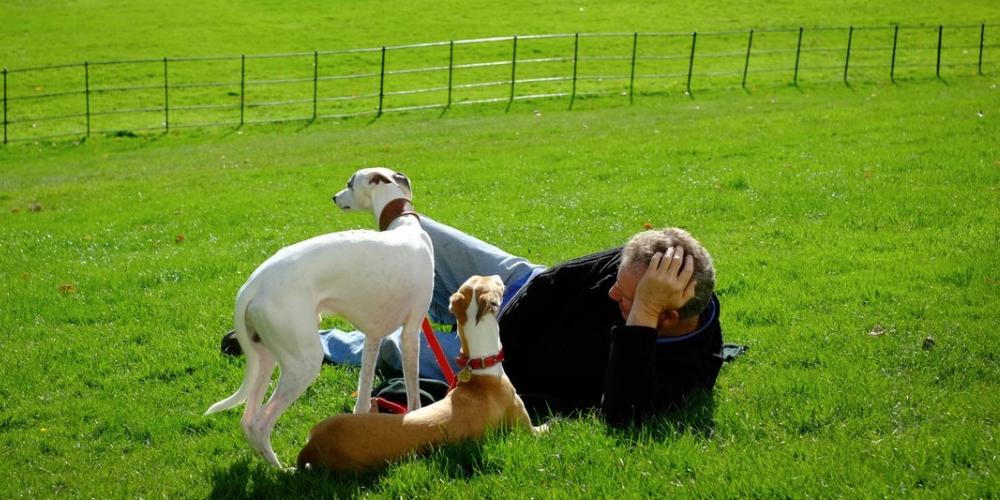
You may have seen Canine Influenza making headlines in the news recently. Like with human flu, the Canine Influenza Virus (CIV) can cause respiratory symptoms that can progress to potentially life-threatening infections, especially in very young, very old, or immune compromised dogs. However, unlike the human version, CIV is not seasonal – it can affect any dog at any time of year. Also, until recently, there was only one strain in the United States. Now, there are two.
Though canine influenza infects relatively few dogs, the new strain is concerning for those of us who care for them. The “old” virus, known as H3N8, was first known to cause illness in dogs in 2004. This virus originated in horses at least 40 years ago.
The “new” Canine Influenza, or H3N2 (think: “2” is “new”), is an avian influenza virus that adapted over time to infect dogs. This flu virus was detected in South Korea in 2007 and made its debut in the U.S. in Chicago in April of 2015. Cases have been documented in 25 states, including the New York-New Jersey area. A few cases of have been reported in cats.
See a pattern? Both H3N8 and H3N2 jumped from another species into dogs: the influenza viruses as a group are known to mutate rapidly, making them particularly adaptable to new species.
While there have been no known cases of H3N2 in humans, the new CIV is highly contagious and dog owners can act as a source of transmission to their pets: the virus can survive on surfaces like clothing for up to 48 hours. If you have contact with an obviously sick dog, wash your hands and maybe even change clothes before greeting your dog. Onset of signs after exposure is 1-4 days, with an infected dog shedding before, during and even after clinical signs.
Since influenza is a virus, a dog that becomes sick with this disease has to rely on their own immune system and supportive care to hopefully get them through. CIV can cause coughing, sneezing, nasal discharge, and may progress to pneumonia. This can damage the lungs and can result in life threatening conditions. Thankfully, there is a vaccine available that covers for both strains of influenza. Initially the vaccine is administered as two injections 2-4 weeks apart, with a booster every year thereafter. The CIV vaccine can be given in puppies as early as 7 weeks of age. It is important to note that maximum protection occurs 2-3 weeks after the second (booster) vaccine.
Should you vaccinate your dog against CIV? This is a discussion you should have with your veterinarian. The decision should be based on your dog’s health status and their risk for exposure. New cases are documented and updated on Cornell’s surveillance website: https://ahdc.vet.cornell.edu/news/civchicago.cfm.
At Rhinebeck Animal Hospital, we see three options for dealing with the CIV threat. The first is to start the series of vaccinations against CIV and continue to booster every year. This option is best for dogs that regularly socialize with other dogs at dog parks, competitions or day care facilities, or who frequently visit NYC. In these scenarios the risk for exposure warrants vaccination. This option is required for all dogs boarding at our facilities.
The second option is to start the vaccine series for both viruses, but only give the annual booster if an outbreak in the area is reported, or if your dog’s lifestyle changes. A booster, even if given years after the initial vaccine, will still stimulate the immune system to protect your dog from severe disease.
The last option is to skip the vaccine all together. If your dog doesn’t socialize at all, this might be the option for you. In this case, dog owners should keep their eyes and ears open regarding outbreaks in our area and talk to your veterinarian at annual exams about the current risk for exposure to CIV.
---
Should you have any questions, comments or concerns, please don't hesitate to contact us by phone at 845-876-6008, or by e-mail at [email protected].
Thank you for continuing to trust Rhinebeck Animal Hospital as part of your pet's health care team!
With warmest regards, Your friends at Rhinebeck Animal Hospital
